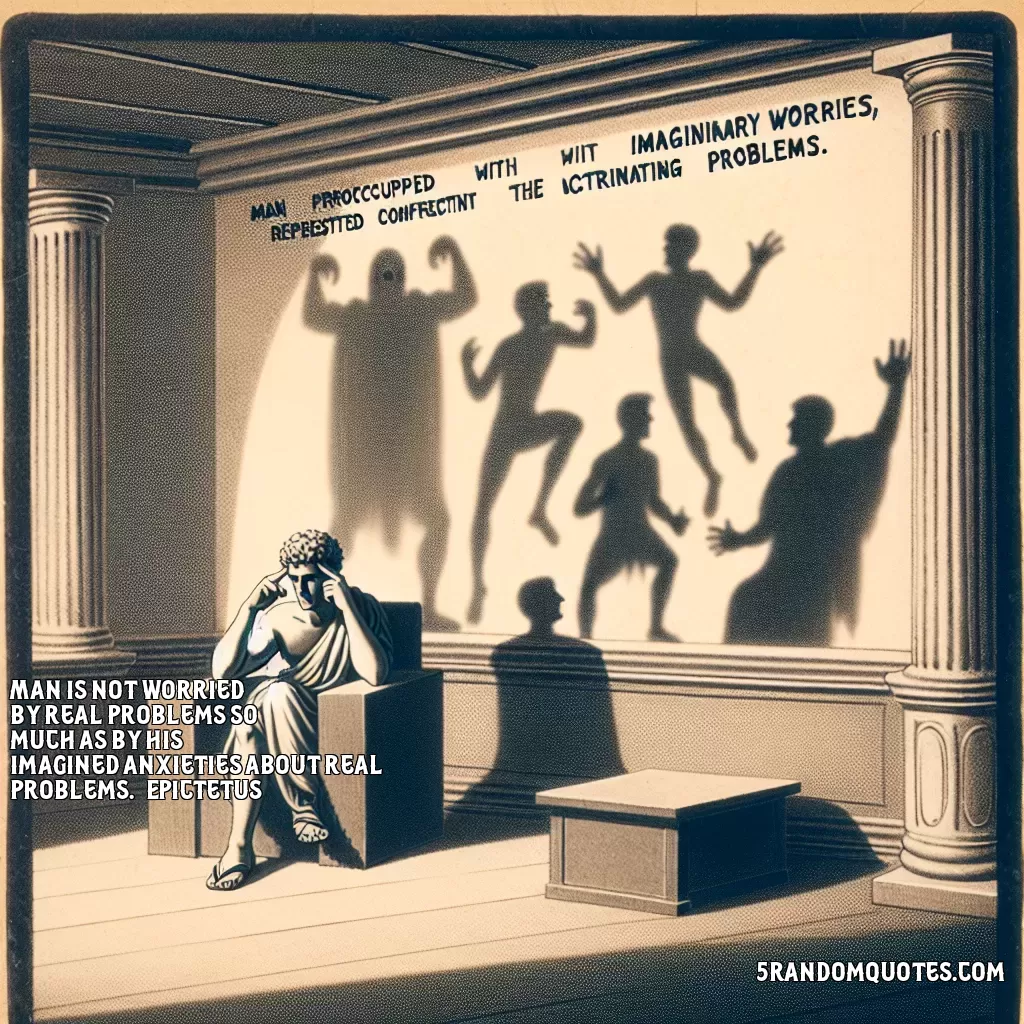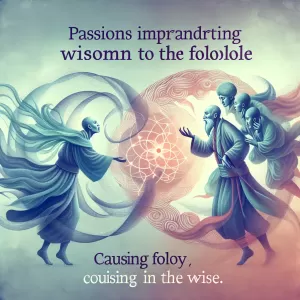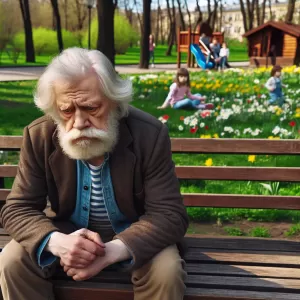
Man is not worried by real problems so much as by his imagined anxieties about real problems. – Epictetus
Author: Epictetus
👁️ 53 views

Man is not worried by real problems so much as by his imagined anxieties about real problems. – Epictetus
👁️ 53 views
This quote by Epictetus suggests that humans often experience more distress from their imagined fears and anxieties than from actual problems themselves. The real issues we face may not be as troubling as the way our minds perceive and amplify them. Epictetus implies that our thoughts and the way we anticipate potential challenges can create more suffering than the reality of the situations. This highlights the importance of managing our thoughts and focusing on realistic assessments, rather than letting our imaginations generate unnecessary worry.
Quote By: Epictetus

Silence is worse; all truths that are kept silent become poisonous. – Friedri...
👁️ 70 views
Author:
Friedrich Nietzsche
#freaky quotes

Faust's true tragedy isn’t that he sold his soul to the devil. The real trage...
👁️ 61 views
Author:
Thomas Merton
#freaky quotes

There is always some madness in love. But there is also always some reason in...
👁️ 60 views
Author:
Friedrich Nietzsche
#freaky quotes

Keep a green tree in your heart, and a singing bird will surely come.
👁️ 57 views
Author:
Spring - Antoine de Saint-Exupéry
#freaky quotes

Passions give wisdom to the foolish and foolishness to the wise. (Seneca)
👁️ 56 views
Author:
Seneca
#freaky quotes

Man is unhappy because he doesn't know he is happy. – Fyodor Dostoevsky
👁️ 56 views
Author:
Fyodor Dostoevsky
#freaky quotes

Love is a state in which a man sees things most decidedly as they are not. – ...
👁️ 56 views
Author:
Friedrich Nietzsche
#freaky quotes
Epictetus (c. 55-135 AD) was a Greek Stoic philosopher born a slave in Phrygia, later gaining his freedom and establishing a school of philosophy in Nicopolis, Greece. His teachings emphasized the importance of inner virtue and self-control over external circumstances, encapsulated in his famous assertion that it is not events themselves that disturb us, but our judgments about them. His ideas have profoundly influenced both ancient and modern philosophy, particularly through the writings of his student Arrian, notably in the "Discourses" and the "Enchiridion."
Bio added on: 2025-02-17 00:56:52